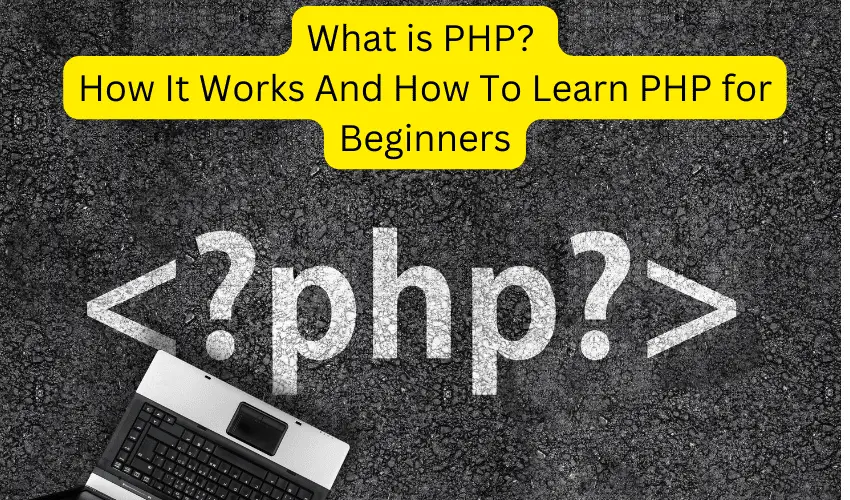Coding and programming are valuable skills in the digital age. Learning how to create and manipulate software opens opportunities for a high-paying career in the tech industry. It's also a doorway into exploring new passions and hobbies for the tech-inclined.
PHP is a smart entry point into the world of programming. Here's everything you need to know about what PHP is, how it works, and how to learn it.
Also Read: GoLang: Install Go on CentOS (RHEL, Oracle Linux)
What is PHP?
PHP is an older, open-source programming language. It's considered well-established and still relevant in development. As the language is open-source, it's accessible for programmers at all levels to learn and use as they see fit.
PHP is a recursive acronym, standing for Hypertext Preprocessor, though legend has it that it once stood for Personal Home Page. Its ease of use and open-source access make it a go-to for major companies like Meta and WordPress.
As a server-side language, PHP can't be read directly by a browser. When you type in a URL to a site with PHP coding, the request goes to the web server. As the browser can't read PHP, the language is interpreted and transferred back to the browser as HTML.
Pros of Using PHP
The primary benefit of learning PHP is that it's open-source— it's free to use, anytime, anywhere. This feature is ideal for new programmers and companies with limited resources.
PHP is also compatible across all operating systems, making it available for Mac, Windows, and Linux users. Beginners can capitalize on this feature by connecting with a remote community and sharing a similar experience.
While PHP is a simple language, it's effective. It's more stable than JavaScript, robust than pure HTML, and more web-oriented than Python.
Cons of Using PHP
PHP is the perfect beginner stepping stone for learning more robust languages. Yet, it's not without its limitations and flaws.
While the open-source nature makes the language available for all, not all users have good intentions. PHP is considered weaker and less secure than other programming languages due to its open-source status.
Trying to use PHP for robust, large-scale projects can also lead to poor performance and bugs. PHP also limits the ability to modify the core functionality of applications.
PHP Tips for Beginners
Learning a new skill can be intimidating, even when starting with an approachable language like PHP. Here are some top tips for learning PHP as a beginner.
Connect with the Programming Community
The programming community is open and welcoming— especially when it comes to PHP. Using online forums allows you to connect with other beginners and ask the experts when you run into challenges. You can check out DaniWeb as a great starting point.
Learn HTML Basics
One of the most commonly asked questions about PHP is, "if it becomes HTML, why bother learning it?"
PHP is more fluid and malleable than HTML. Yet, it's still beneficial to learn the HTML basics to get a better understanding of how these two languages interact. Consider taking a course on HTML or learning these languages concurrently.
Get Your Hands Dirty
Reading will only take you so far in the world of programming. The best way to learn a new language is to use it.
Dive into some hands-on work as you learn this new skill. Engage in some offline projects so you can intentionally "break" your code and learn how to fix it.
Prioritize Integrity
"Complacency breeds mediocrity and steals potential."
Taking shortcuts and letting your code get sloppy now creates bad habits that will come back to haunt you with more robust projects. Follow the best practices for spacing, clarity, and conciseness as you learn PHP.
Final Thoughts
Practice makes progress when learning a new programming language. Connect with a community and take a hands-on approach as you explore this new skill.
We are giving you exclusive deals to try Linux Servers for free with 100$ credit, check these links to claim your 100$,
DigitalOcean - 100$ free credit & Linode - 100$ free credit
Check some Exclusive Deals, HERE.
Also, check out DevOps Book You should read section.
